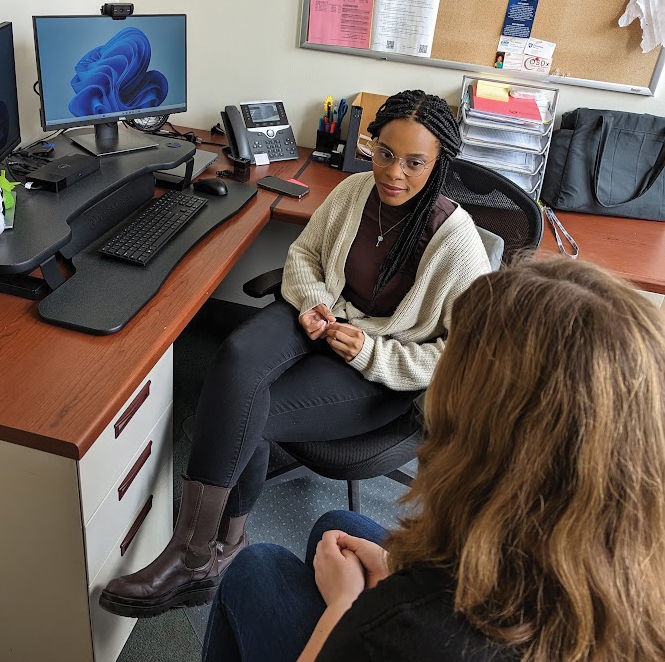For first-year students, the first six weeks at college are crucial. Those who struggle, fall behind, or fail to engage are the ones most likely to give up. Research done by the Strategic Plan group for Student Success and Retention at Penn State Behrend confirms that students who leave college before completing a year often decide to do that within the first six weeks.
To better support those students, the group created the “Six Weeks Initiative”—a coordinated network of faculty members, support staff, and campus resource officers who can provide support as students adjust to campus life.
To identify students who are underperforming in class—and who may be at risk of leaving the college—the initiative encourages faculty members to “flag” students who are not attending or participating in class in an online database. Students who are flagged are then referred to members of the Six Weeks team.
“We reach out to them by phone or by text,” said Dr. Ken Miller, senior director of administration and student affairs at Behrend. “Or we have residence hall staff go to their rooms. It’s more than an email.”
Megan O’Polka, a residence life coordinator in Ohio and Senat halls, and in a cluster of suite-style apartments at Behrend, was a liaison to students during the inaugural Six Weeks Initiative. She saw a benefit in being able to talk with them face-to-face.
“We could go and knock on their door,” she said. “It was a way to show that we cared.”
The conversations that stem from that outreach often reveal other stressors in students’ lives, said Emily Artello, associate director of exploratory and pre-major advising at Behrend and a member of the Six Weeks Initiative team.
“There are all sorts of different things that could be going on,” Artello said. “It could be a situation with their family. It could be a health issue, or an organizational issue. Just having that conversation early on, letting them know, ‘Hey, there are resources here for you,’ is important.”
Miller and others involved in the initiative hope to collect data that can predictively model student success. “There’s a lot we can still learn,” he said. “For example, what characteristics do we see in first-year students that can indicate when there is a need for more support?”
The initiative supports the college’s commitment to individual students, said Kelly Shrout, associate director of student affairs.
“It’s not just about numbers,” she said. “It’s about each individual student—how they are treated while they are with us, and what they carry through. Our first-year students are not ‘vulnerable’ students. They are students who are experiencing new things. We need to make sure they are aware of the resources, options, and support available to them.”
Feedback about the initiative has been positive, Shrout said. “Most students have been receptive to outreach and appreciate someone checking on them and offering to help with whatever challenges they are experiencing.”
